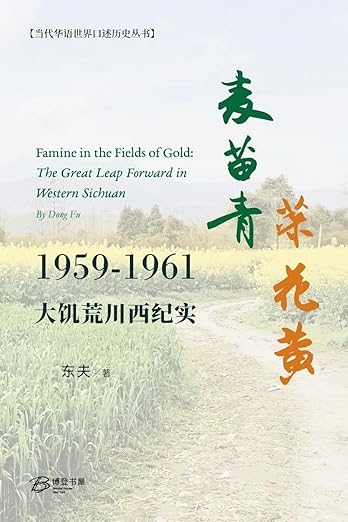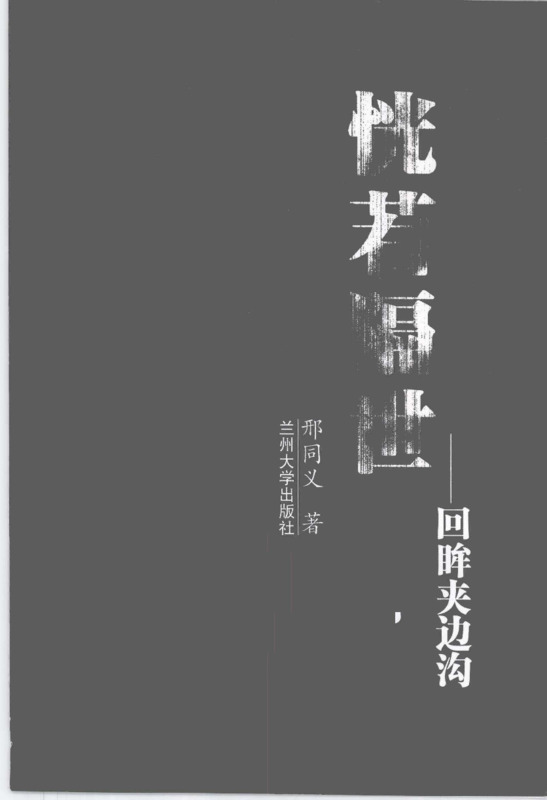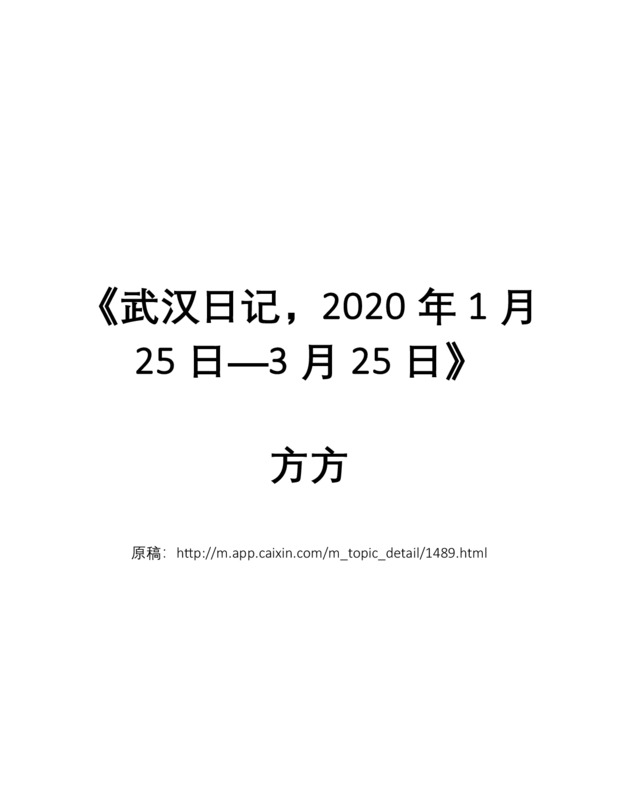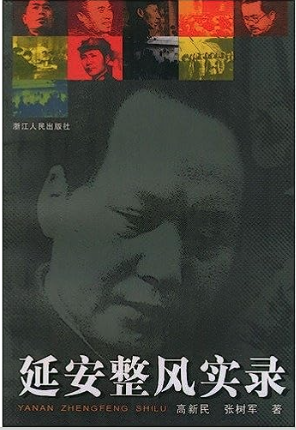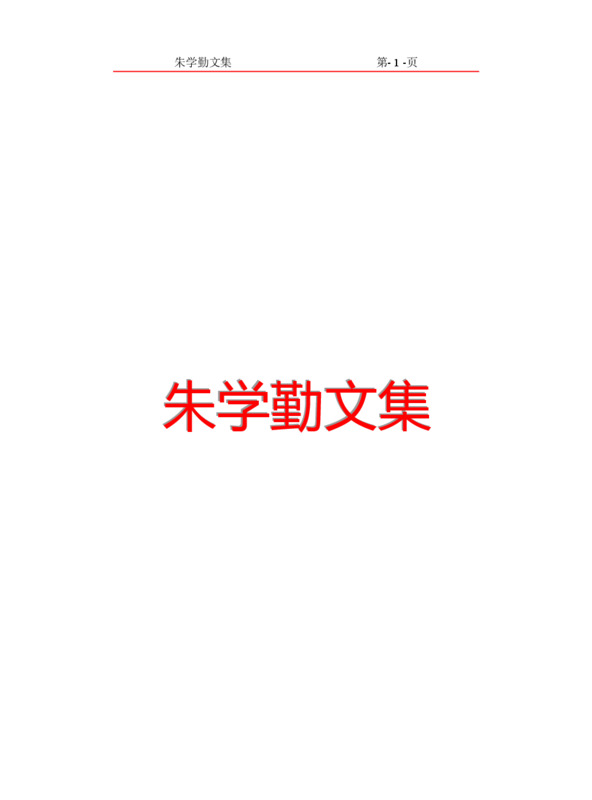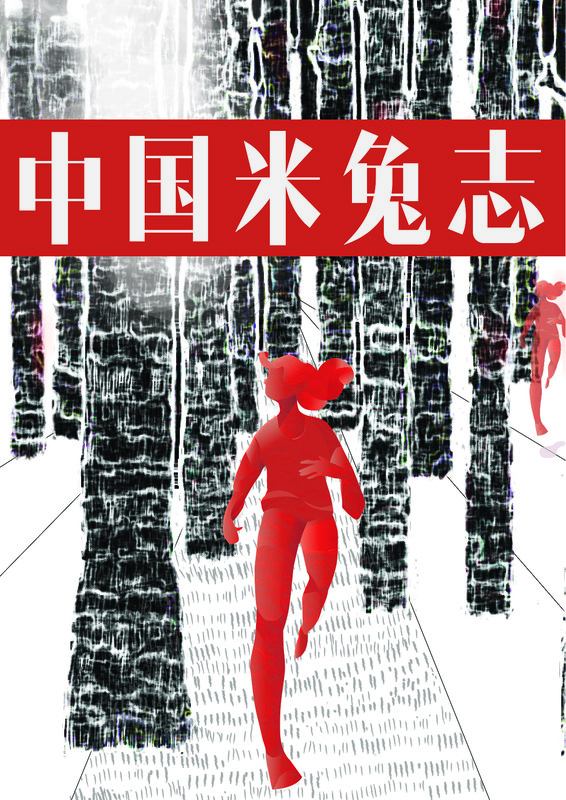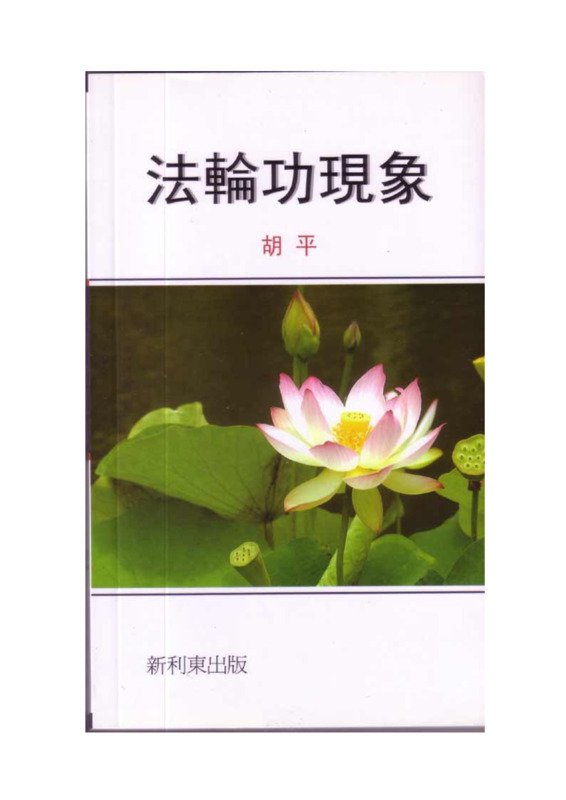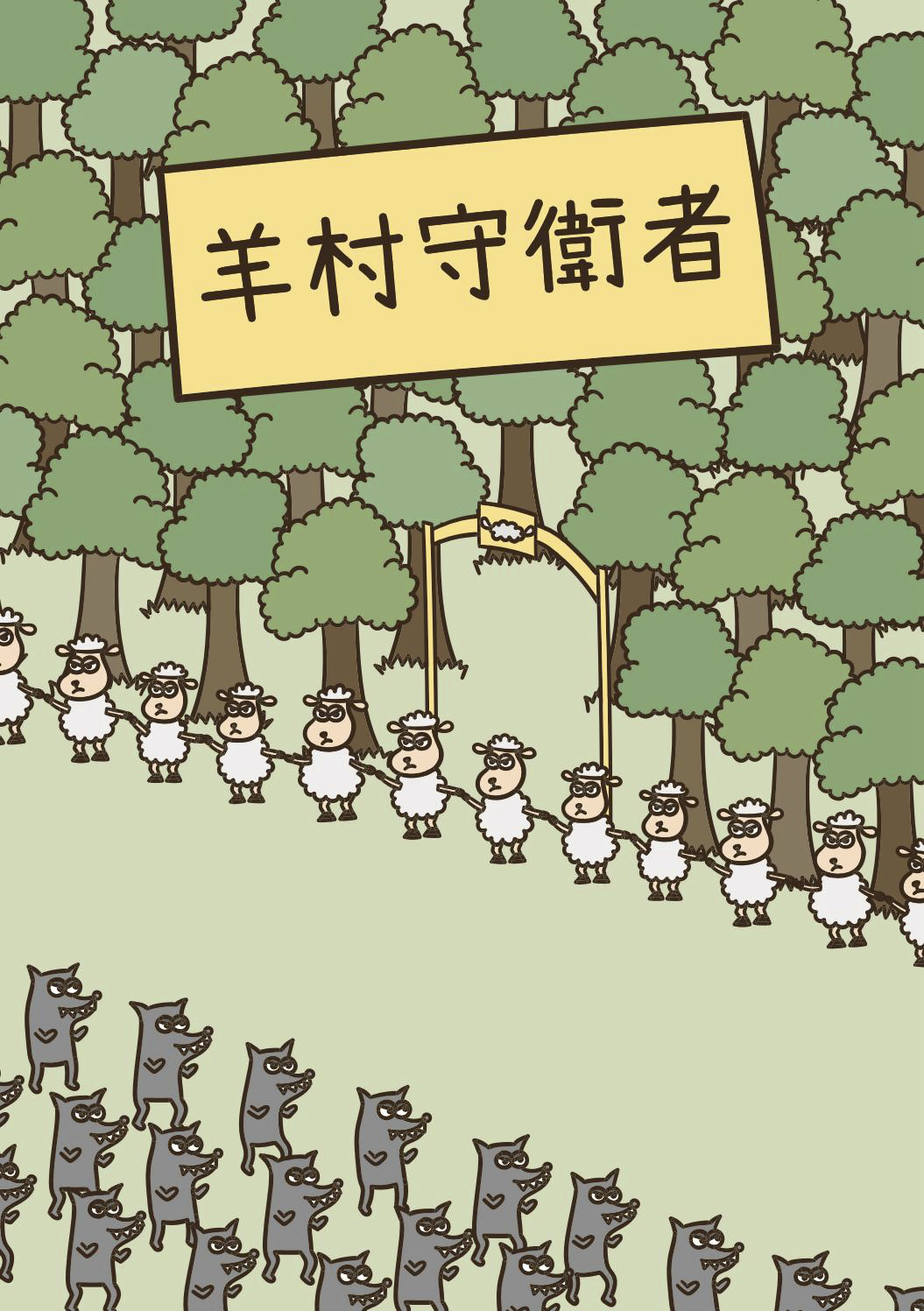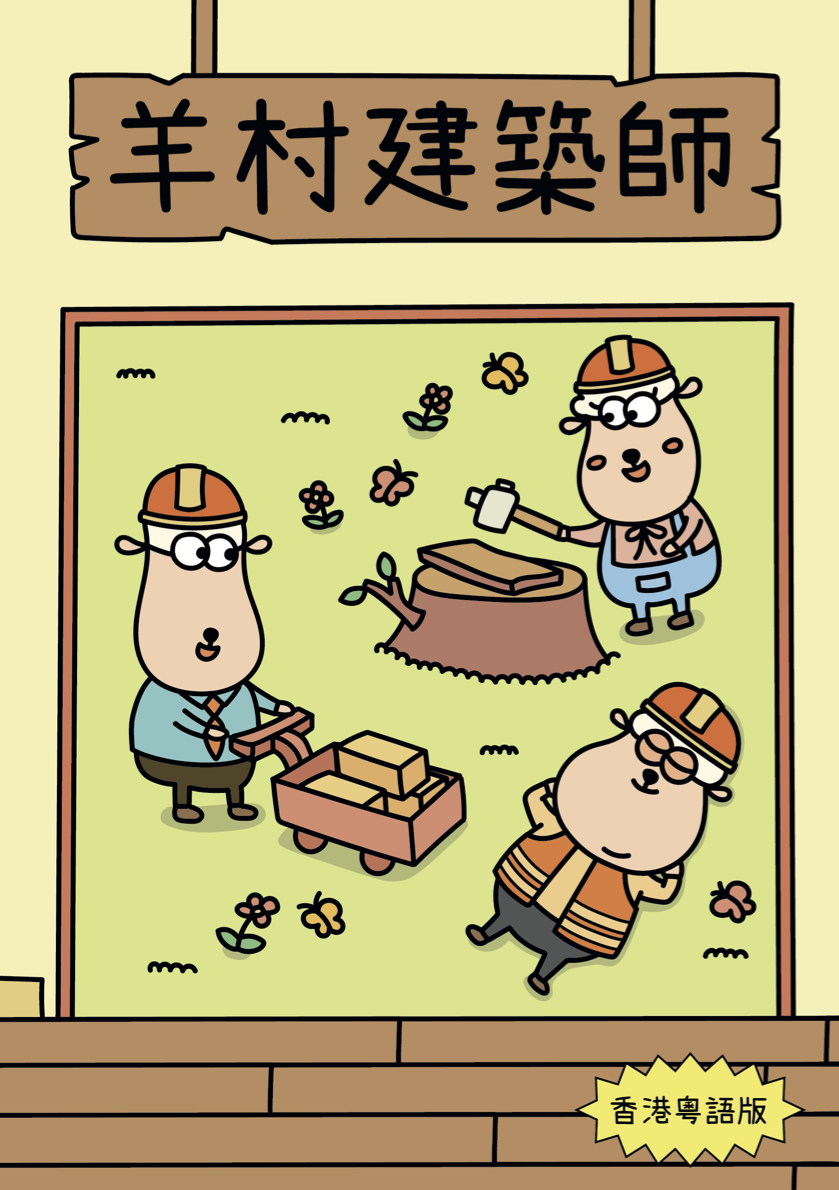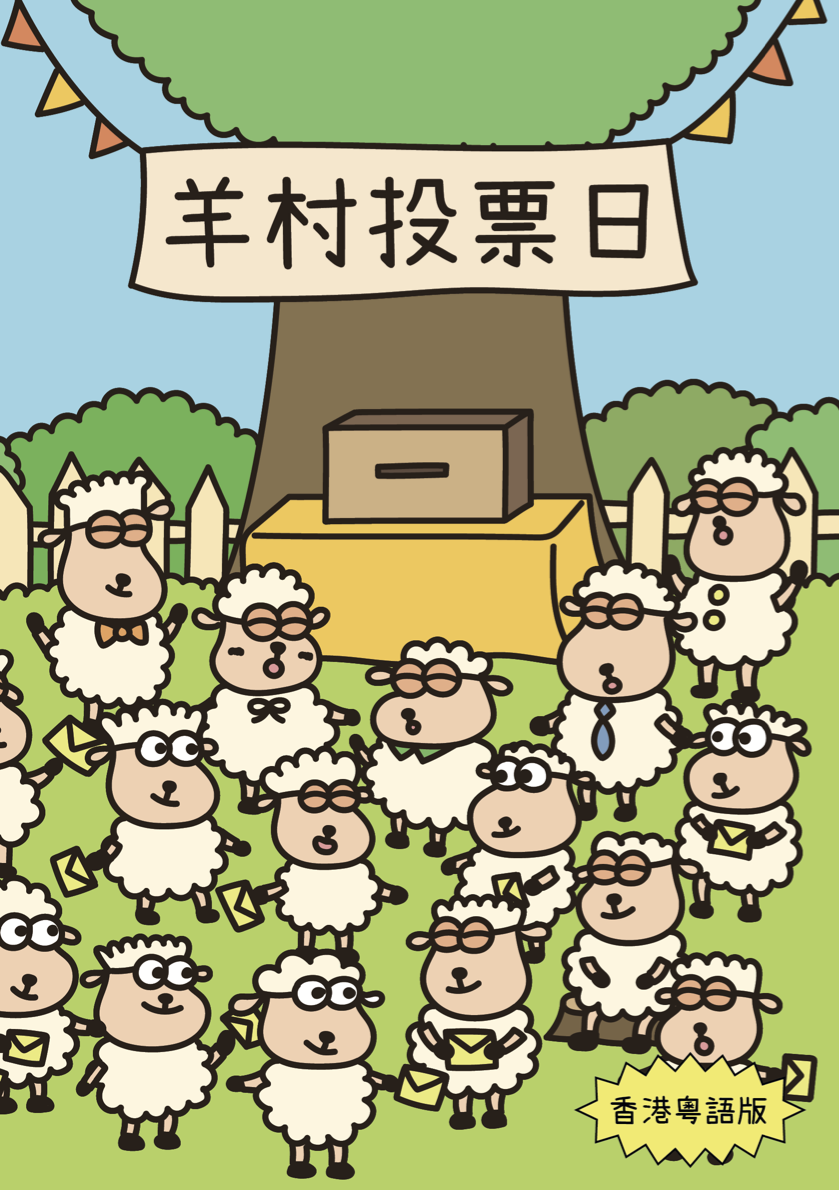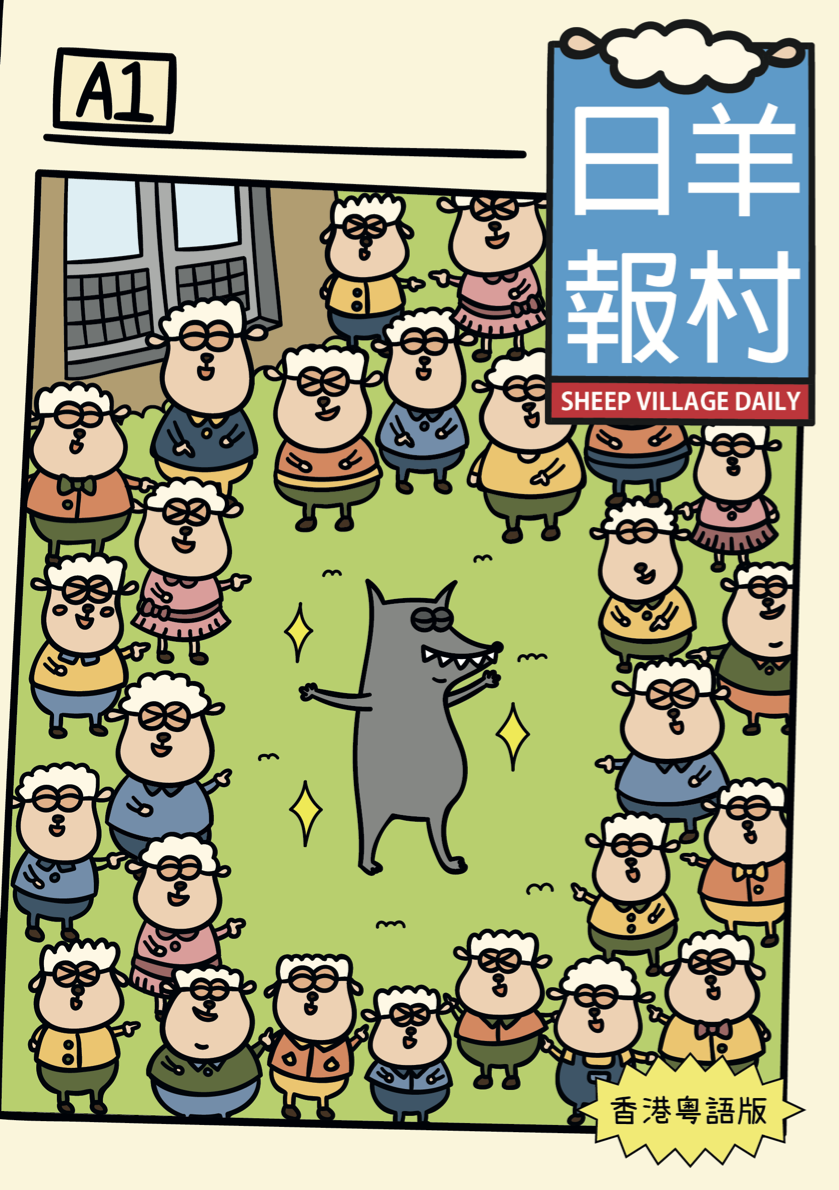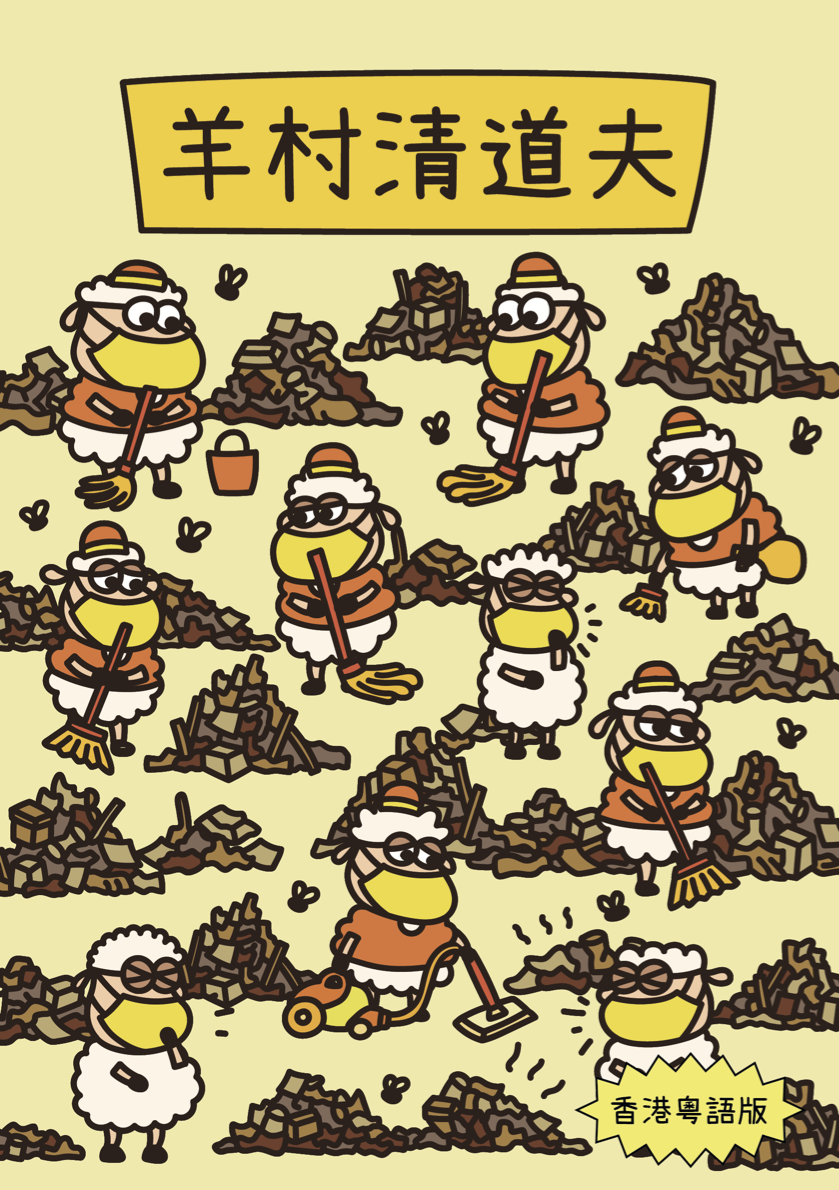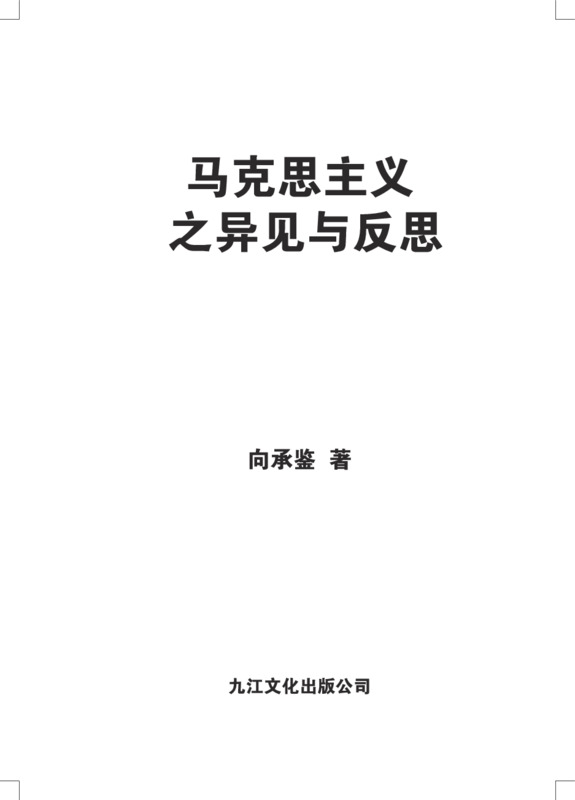Explore the collection
Showing 160 items in the collection
160 items
Book
Wheat Seedlings and Vegetable Blossoms: A Chronicle of the Great Famine in Western Sichuan Province
Traditionally, the western Sichuan plain was known as China's "Land of Abundance," but it became a focal point of the Great Famine of 1959-1961. Sichuan was one of the hardest-hit areas, with the largest number of deaths from starvation in the country and one of the highest death rates.
The title of the book, "Apricot Blossoms and Wheat Seedlings" is taken from a popular revolutionary song of the Mao era. In March, 1958, the Communist Party held a central work conference (known as the Chengdu Conference) at the Jinniu Dam Guest House near Chengdu, during which Mao Zedong inspected the Hongguang (Shining Red) Commune in nearby Pixian County. Two songs were written to commemorate that occasion.. One was "Red Flowers Bloom in the Shining Red Commune," and the other was "Apricot Blossoms and Wheat Seedlings."
The author of this book, Dong Fu (the pen name of Wang Dongyu), was born in Wenjiang, in the western Sichuan plains. He belonged to the "lao san jie"--students whose education was disrupted during the Cultural Revolution. His father was a veteran CCP cadre who engaged in underground party work and who later was responsible for economic policies. As a youth and as a soldier during the Great Leap Forward in Sichuan, Dong Fu saw the famine first-hand. During the Cultural Revolution he enlisted in the army and worked as a reporter for the Chengdu Military District's Zhanqi News.
After graduating from college, he began to work on this history. He was able to draw on his father's connections to research the book, in the 1980s and 1990s interviewing retired officials who knew his father and who could confide in him. Many have since passed away, giving this book great historical value. He was also able to collect extensive material from historical archives, also in part due to his father's and his own personal connections to the region.
This book was published by the Tianyuan Bookstore in Hong Kong in 2008 on the 50th anniversary of the start of the famine (some historians date the famine from 1958-1962, others from 1959-1961). In contrast to macro accounts of the Great Famine, such as Yang Jisheng's “Tombstone” (https://main--minjian-danganguan.netlify.app/collection/%E6%9D%A8%E7%BB%A7%E7%BB%B3-%E2%80%93-%E5%A2%93%E7%A2%91%EF%BC%9A%E4%B8%AD%E5%9B%BD%E5%85%AD%E5%8D%81%E5%B9%B4%E4%BB%A3%E5%A4%A7%E9%A5%A5%E8%8D%92%E7%BA%AA%E5%AE%9E) or Frank Dikötter's
“Mao's Great Famine” (https://www.frankdikotter.com/books/maos-great-famine/), Dong Fu's work is a case study of the famine in one area. By focusing on the western plains around Chengdu, the author shows how Mao's policies destroyed agricultural life in even historically rich areas that in normal times are China's breadbaskets.
Another feature of this book is its writing style. In reviewing this book in 2009, the theorist Hu Ping notes that history writing in China was shaken up by William Manchester's “The Glory and the Dream”, which was published in China in 1979. It was a vividly written history of the United States between 1932 and 1972 that showed that history could be engaging and entertaining. Hu Ping sees Dong Fu's work as inspired by Manchester's work, giving a panoramic, deftly written account suitable for the general reader, but based on solid research. Dong Fu weaves in the top-level battles with ordinary people's views, as well as social and cultural history. He mines the archives for telling details, such as complaints that people filed with the government, witty jingles that they composed to express their pain, and folk traditions. Hu Ping, who also grew up in the same region around the same time, writes:
"During the years of the Great Leap Forward, I was in primary school and junior high school in Chengdu. Reading the relevant chapters of Dong Fu's book, I felt very close to it, and many people and events from that year came vividly to mind. This feeling is something I have never experienced when reading other books about the Great Leap Forward period—whether they are theory books, history books, or even literature books." (https://www.rfa.org/mandarin/zhuanlan/shuwenpingjian/huping-05062009153055.html)
Book
When the Iron Bird Flies: China's Secret War in Tibet
Around the eighth century A.D., the founder of Tibetan Buddhism, Guru Rinpoche, prophesied, "When the iron bird flies in the sky and the iron horse runs on the earth, the Tibetans will be dispersed all over the world like ants, and the Buddha's Dharma will be spread into the land of the red people." More than 1,000 years later, in the middle of the 20th century, the Chinese Communist Party drove the "iron bird" across the sky and rode the "iron horse" across the plateau. The Tibetans courageously rose up to resist resulting in with countless deaths countless deaths. Those who survived were forced to leave their homeland and live in exile in India, drifting around the world. Thus, the prophecy came true. From a military point of view, the Tibetan war in Tibet was a victory, but it received only minimal publicity. The official version of the Party's history is either vague or evasive about the bloody massacre during the entry into Tibet, attempting to cover it up by "suppressing armed rebellion" and "purging counter-revolutionaries". More than sixty years later, this war has yet to be demystified. Li Jianglin, an independent scholar, was moved by the tragedy of the war and the plight of the Tibetans, and endeavored to restore the historical facts. Since 2004, she has devoted herself to research, visiting hundreds of Tibetan elders, searching for tens of thousands of historical materials, collecting military archives, and comparing them with the official published materials of the Communist Party of China, in order to present memories of past, little by little.
Book
Who is the New China
Author Xin Hao Nian tries to analyze the modern history of China since the Xinhai Revolution. He pointsout that the People's Republic of China (PRC) is a restoration of the authoritarian system, and the Republic of China (ROC) represents China's road to a republic. The first volume of the book defends and clarifies the history of the Kuomintang (KMT), arguing that the KMT is not a "reactionary faction" as claimed by the CCP. The second volume criticizes the revolution and history of the CCP. The book was first printed in 1999 by Blue Sky Publishing House (USA) and reprinted in June 2012 by Hong Kong's Schaefer International Publishing. It is banned on the mainland.
Book
Worlds Away: A Look Back at Jiabiangou
This book was published by Lanzhou University Press in 2004. The author, Xing Tongyi, once served as deputy director of Gansu People's Broadcasting Station and director of the Standing Committee of the Jiuquan Municipal People's Congress.
Jiabiangou Farm is a farm located on the edge of the Badain Jaran Desert in Jiuquan, Gansu Province, about 30 kilometers northeast of Jiuquan City. It became a labor camp in 1957. Before it was banned in October 1961, more than 3,000 intellectuals who were labeled as rightists were detained here. During the Great Famine, most of the intellectuals in farm labor camps died due to starvation and excessive workload. This is known as the Jiabiangou Incident. Jiabiangou has also become a symbol of the concentration camps where persecuted intellectuals were imprisoned.
Xing Tongyi was born in Tianshui, Gansu. He said that when he was young, he witnessed a neighbor named Guo being beaten as a rightist and sent to Jiabiangou Labor Camp. In 1961, he learned that this neighbor had starved to death in Jiabiangou. When he was in school at No. 1 Middle School in Tianshui City, his math teacher was Li Jinghang, a Christian who survived Jiabiangou. Xing Tongyi later served as a reporter and deputy director of Gansu Radio Station for a long time, and went to work in Jiuquan in 1996. After that, he took advantage of various opportunities to go deep into Jiabiangou and some surrounding labor reform farms. By consulting a large number of historical materials, he interviewed dozens of rightists who had undergone labor reform in Jiabiangou, or the children of these rightists. It took eight years to complete this book.
Unlike Yang Xianhui's novelistic description of Jiabiangou, Xing Tongyi's narrative is composed of interviews with the people involved and quotations from first-hand historical materials. According to Xing Tongyi, the historical materials he referred to include the Jiabiangou Farm's "Plan and Mission Statement" and the anti-rightist report of "Gansu Daily" in 1957. In addition to interviewing Jiabiangou survivors or their children, he also found information on more than 40 of the more than 2,000 rightists who were in labor camps at the time and were prosecuted by the Jiuquan County Procuratorate for resisting labor camps. After the book was published, people continued to provide him with historical materials, such as death notices and diaries of the victims.
How many labor camp inmates were there in Jiabiangou at that time? In order to clarify this issue, Xing Tongyi interviewed dozens of people, reviewed information, and also found Luo Zengfu, the production section chief of Jiabiangou Labor Camp, the only farm management cadre alive at the time. Based on the information provided by Luo Zengfu, Xing Tongyi's research concluded that there were a total of about 2,800 inmates in Jiabiangou Farm at that time, including about 2,500 rightists. This number is considered to be relatively accurate.
Book
Wuhan Diary: Dispatches from a Quarantined City
This book is a collection of diary entries written in the early months of the COVID-19 pandemic by Fang Fang, a Chinese writer and advocate of the working poor in China. In these diary entries, Fang Fang documents the various daily difficulties faced by her and other Wuhan residents from January to March 2020. In this book, she also ponders the implications of official policies with regard to the pandemic and the way in which the public and the government have responded to the outbreak of COVID-19. These entries tell us about the hopes and fears of the people of Wuhan during the early stage of COVID-19, and adds to our understanding of public opinion and government policies in China in the 2020s. The diaries were published in Chinese, and have also been translated by Michael Berry into English and published by Harper Collins Publishers.
You can purchase the English version of the book using <a href="https://www.harpercollins.com/products/wuhan-diary-fang-fangmichael-berry?variant=40153409749026">this link</a> .
Book
Yan'an Rectification
The Rectification Movement took place in Yan'an, North Shaanxi Province, in the 1940s. This book, written by scholars within the Chinese official system, attempts to chronicle the ins and outs of the Rectification Movement in Yan'an and the base areas, analyzing its causes and the logical development of its results. It is rich in information that is only found here. This book was published by Zhejiang People's Publishing House in 1999.
Book
Yangmou - The Beginning and End of the Anti-Rightist Movement
The revised edition of this book was published by *Open Magazine* in Hong Kong in 2007. The first edition was published in 1991 and was revised and reprinted twice, in 1993 and 1995. The book collects a large amount of information about the anti-rightist movement, including survey interviews with victims of the anti-rightist movement and their relatives and friends. It is a complete record of the anti-rightist movement, which comprehensively analyzes and discusses the whole process of the anti-rightist movement, as well as its ins and outs, causes and consequences. Regarding the number of "rightists," the statistics of the CCP authorities had been limited to 550,000 people. According to Ding Lyric's analysis, there were about 1.2 million people who were labeled as "rightists" in the Anti-Rightist Movement.
Book
Yangtze Yangtze
In March 1989, the book Yangtze Yangtze was published by the Guizhou People's Publishing House just as the Tiananmen student protests were about to begin in Beijing. The book fed into this intellectual ferment, challenging the technocratic reasons for the Three Gorges Dam, which eventually would dam the Yangtze River in the name of flood control and electrical power generation.
The book was edited by the journalist Dai Qing, the daughter of a well-known Communist Party activist and leader. The book challenged the project's decision-making process, with a broad array of scientists, journalists, and intellectuals arguing that it was not democratic and did not take into account all viewpoints. It was widely read in China and translated into foreign languages.
After the Tiananmen protests were violently suppressed, Dai Qing was arrested and imprisoned for ten months in Qincheng Prison as an organizer of the uprising. Yangtze Yangtze was criticized as “promoting bourgeois liberalization, opposing the Four Fundamental Principles (of party control), and creating public opinion for turmoil and riots.” The book was taken off the shelves and destroyed, with some copies burned. It became the first banned book resulting from the decision-making process of the Three Gorges Project.
The book is banned in China. The English-language edition can be read online at Probe International: https://journal.probeinternational.org/three-gorges-probe/yangtze-yangtze/.
Book
Zhao Ziyang’s Conversations Under House Arrest
In January 2007, Hong Kong Open Press published the book "Conversations of Zhao Ziyang under House Arrest". It was narrated by Zong Fengming and prefaced by Li Rui and Bao Tong. The narrator, Zong Fengming, is an old comrade of Zhao Ziyang. He retired from Beijing University of Aeronautics and Astronautics in 1990. From July 10, 1991 to October 24, 2004, using the name of a qigong master, Zong Fengming visited Fuqiang, who was under house arrest in Beijing. Zhao Ziyang, who lives at No. 6 Hutong, had hundreds of confidential conversations with Zhao Ziyang. This book is a rich account of these intimate conversations. Zhao Ziyang talked about the power struggle and policy differences within the top leadership of the CCP, his relationship with Hu Yaobang, his evaluation of Mao Zedong and Deng Xiaoping, his criticism of Jiang Zemin and Hu Jintao, Sino-US relations, the Soviet Union issue and Taiwan issues. He also conducted in-depth reflections on the history of the Communist Party.
Book
Zhu Xueqin Anthology
A collection of essays by Zhu Xueqin, a Chinese liberal intellectual. He has faced and criticizes various problems in China from a liberal point of view. Most of Zhu Xueqin's books were later banned.
图书
#MeToo in China Archives 2018.1-2019.7
On New Year's Day 2018, Beihang University graduate Luo Xixi took the lead in breaking China's silence on the issue of sexual harassment when she publicly reported on social media that Beihang professor Chen Xiaowu had sexually harassed her. This was the first major event in China’s #Metoo movement, which has since spread from colleges and universities to other fields. #Metoo provoked an unprecedented discussion in China, and the issues of feminism and sexual harassment attracted a rare and widespread attention, with a variety of complaints, comments, studies, and advocacy articles springing up all over the internet.
<i>#MeToo in China Archives 2018.1-2019.7</i> is a compilation of sexual harassment-related articles written between January 2018 and July 2019. This archive is massive, totaling more than 2,500 pages, and is divided into three main volumes: “#Metoo in Higher Education”, “#Metoo in other fields”, and “#Metoo discussions’. Volume I and Volume II consist of individual #Metoo cases, arranged in chronological order. Articles in volume 3 can be broadly categorized into general reviews, investigative reports, personal stories, advocacy and activism, tools and resources,etc. During the #Metoo movement, many liberal public intellectuals questioned the movement, likening it to big-character posters during the Hundred Flowers campaign, and arguing that it might lead to the proliferation of wrongful convictions. It triggered heated debates, and this archive also contains a number of related articles.
The process of compiling this archive itself became an act of resistance, given the severe repression on freedom of expression and social movements. The editorial team faced tremendous challenges in collecting articles that had been deleted or published as images to bypass online censorship. It spent a great deal of time and personnel piecing together scraps of information and transcribing words in images. Reading traumatic personal stories - including those about the hardships in seeking remedies - caused psychological trauma for the editors themselves.
Nevertheless, #Metoo has also a process of collective healing, in which women with shared experiences saw each other, realized the structural problems behind sexual violence, and gained the strength to move on and push for change. Finally, during the compilation process, the editorial team also benefited from archiving efforts made by other websites and individuals, demonstrating that the rescue and preservation of people’s history is a collective and collaborative task.
This archive is published on https://chinesefeminism.org/.
Book
The Falun Gong Phenomenon
This book is a collection of several long articles and commentaries by Hu Ping on Falun Gong and the persecution and repression against Falun Gong practitioners. From an independent perspective, this book responds to a series of unfair criticisms and stigmatization of Falun Gong by the Chinese authorities and the public, calling on society to fight for the basic rights of Falun Gong practitioners who have been persecuted.
Book
The Twelve Warriors of Sheep Village (Cantonese and English Versions)
<i>The Twelve Warriors of Sheep Village</i> is a children’s book in the <i>Sheep Village</i> series. This book describes the incident in 2020 where twelve Hong Kong youths fled the city by boat but were intercepted by Chinese authorities and found guilty in Mainland Chinese courts.
The <i>Sheep Village</i> Series Children’s Picture Books
The <i>Sheep Village</i> series is a group of six children's books published by the General Union of Hong Kong Speech Therapists. The six books are titled <i>The Guardians of Sheep Village</i>, <i>The Twelve Warriors of Sheep Village</i>, <i>The Street Cleaners of Sheep Village</i>, <i>Voting Day in Sheep Village</i>, <i>Sheep Village Daily</i>, and <i>The Architects of Sheep Village</i>.
<i/>The Guardians of Sheep Village</i>, <i>The Twelve Warriors of Sheep Village</i>, and <i>The Street Cleaners of Sheep Village</i> were published in Hong Kong between 2020 and 2021, while the other three were not formally published and were mainly distributed on the Internet.
On July 22, 2021, the national security unit of the Hong Kong Police arrested five board members of the Hong Kong General Union of Speech Therapists, including its president Lai Man Ling and its external vice president Yeung Yat Yee Melody, as well as the union's three other board members, Ng Hau Yi Sydney, Chan Yuen Sum Samuel, and Fong Tsz Ho, on the charge of conspiracy to print, publish, distribute, display and/or reproduce seditious publications. The five defendants were denied bail and remanded in custody for nearly a year before trial. On September 10, 2022, Judge Kwok Wai-kin sentenced the five defendants to 19 months in prison.
The <i>Sheep Village</i> case was the first case involving the charge of conspiracy to print, publish, distribute, display and/or reproduce seditious publications since Hong Kong’s handover in 1997.
图书
The Guardians of Sheep Village (Cantonese and English Versions)
<i>The Guardians of Sheep Village</i> is a children’s book in the <i>Sheep Village</i> series. This book outlines Hong Kong’s 2019 social movement and the relationship between Hong Kong and Mainland China by describing Hong Kong as a sheep village and Mainland China as a wolf village.
The <i>Sheep Village</i> Series Children’s Picture Books
The <i>Sheep Village</i> series is a group of six children's books published by the General Union of Hong Kong Speech Therapists. The six books are titled <i>The Guardians of Sheep Village</i>, <i>The Twelve Warriors of Sheep Village</i>, <i>The Street Cleaners of Sheep Village</i>, <i>Voting Day in Sheep Village</i>, <i>Sheep Village Daily</i>, and <i>The Architects of Sheep Village</i>.
<i/>The Guardians of Sheep Village</i>, <i>The Twelve Warriors of Sheep Village</i>, and <i>The Street Cleaners of Sheep Village</i> were published in Hong Kong between 2020 and 2021, while the other three were not formally published and were mainly distributed on the Internet.
On July 22, 2021, the national security unit of the Hong Kong Police arrested five board members of the Hong Kong General Union of Speech Therapists, including its president Lai Man Ling and its external vice president Yeung Yat Yee Melody, as well as the union's three other board members, Ng Hau Yi Sydney, Chan Yuen Sum Samuel, and Fong Tsz Ho, on the charge of conspiracy to print, publish, distribute, display and/or reproduce seditious publications. The five defendants were denied bail and remanded in custody for nearly a year before trial. On September 10, 2022, Judge Kwok Wai-kin sentenced the five defendants to 19 months in prison.
The <i>Sheep Village</i> case was the first case involving the charge of conspiracy to print, publish, distribute, display and/or reproduce seditious publications since Hong Kong’s handover in 1997.
图书
The Architects of Sheep Village (Cantonese and English Versions)
<i>The Architects of Sheep Village</i> is a children’s book in the <i>Sheep Village</i> series. This book describes the building of civil society in Hong Kong and the authorities’ crackdown on Hong Kong’s civil society after the 2019 social movement.
The <i>Sheep Village</i> Series Children’s Picture Books
The <i>Sheep Village</i> series is a group of six children's books published by the General Union of Hong Kong Speech Therapists. The six books are titled <i>The Guardians of Sheep Village</i>, <i>The Twelve Warriors of Sheep Village</i>, <i>The Street Cleaners of Sheep Village</i>, <i>Voting Day in Sheep Village</i>, <i>Sheep Village Daily</i>, and <i>The Architects of Sheep Village</i>.
<i/>The Guardians of Sheep Village</i>, <i>The Twelve Warriors of Sheep Village</i>, and <i>The Street Cleaners of Sheep Village</i> were published in Hong Kong between 2020 and 2021, while the other three were not formally published and were mainly distributed on the Internet.
On July 22, 2021, the national security unit of the Hong Kong Police arrested five board members of the Hong Kong General Union of Speech Therapists, including its president Lai Man Ling and its external vice president Yeung Yat Yee Melody, as well as the union's three other board members, Ng Hau Yi Sydney, Chan Yuen Sum Samuel, and Fong Tsz Ho, on the charge of conspiracy to print, publish, distribute, display and/or reproduce seditious publications. The five defendants were denied bail and remanded in custody for nearly a year before trial. On September 10, 2022, Judge Kwok Wai-kin sentenced the five defendants to 19 months in prison.
The <i>Sheep Village</i> case was the first case involving the charge of conspiracy to print, publish, distribute, display and/or reproduce seditious publications since Hong Kong’s handover in 1997.
图书
Voting Day in Sheep Village (Cantonese and English Versions)
<i>Voting Day in Sheep Village</i> is a children’s book in the <i>Sheep Village</i> series. This book outlines Hong Kong’s pro-democracy primaries in 2020 and the subsequent jailing of the primaries’ organizers.
The <i>Sheep Village</i> Series Children’s Picture Books
The <i>Sheep Village</i> series is a group of six children's books published by the General Union of Hong Kong Speech Therapists. The six books are titled <i>The Guardians of Sheep Village</i>, <i>The Twelve Warriors of Sheep Village</i>, <i>The Street Cleaners of Sheep Village</i>, <i>Voting Day in Sheep Village</i>, <i>Sheep Village Daily</i>, and <i>The Architects of Sheep Village</i>.
<i/>The Guardians of Sheep Village</i>, <i>The Twelve Warriors of Sheep Village</i>, and <i>The Street Cleaners of Sheep Village</i> were published in Hong Kong between 2020 and 2021, while the other three were not formally published and were mainly distributed on the Internet.
On July 22, 2021, the national security unit of the Hong Kong Police arrested five board members of the Hong Kong General Union of Speech Therapists, including its president Lai Man Ling and its external vice president Yeung Yat Yee Melody, as well as the union's three other board members, Ng Hau Yi Sydney, Chan Yuen Sum Samuel, and Fong Tsz Ho, on the charge of conspiracy to print, publish, distribute, display and/or reproduce seditious publications. The five defendants were denied bail and remanded in custody for nearly a year before trial. On September 10, 2022, Judge Kwok Wai-kin sentenced the five defendants to 19 months in prison.
The <i>Sheep Village</i> case was the first case involving the charge of conspiracy to print, publish, distribute, display and/or reproduce seditious publications since Hong Kong’s handover in 1997.
图书
Sheep Village Daily (Cantonese and English Versions)
<i>Sheep Village Daily</i> is a children’s book in the <i>Sheep Village</i> series. This book describes the loss of press freedom in Hong Kong and the forced shutdown of Hong Kong’s <i>Apple Daily</i>.
The <i>Sheep Village</i> Series Children’s Picture Books
The <i>Sheep Village</i> series is a group of six children's books published by the General Union of Hong Kong Speech Therapists. The six books are titled <i>The Guardians of Sheep Village</i>, <i>The Twelve Warriors of Sheep Village</i>, <i>The Street Cleaners of Sheep Village</i>, <i>Voting Day in Sheep Village</i>, <i>Sheep Village Daily</i>, and <i>The Architects of Sheep Village</i>.
<i/>The Guardians of Sheep Village</i>, <i>The Twelve Warriors of Sheep Village</i>, and <i>The Street Cleaners of Sheep Village</i> were published in Hong Kong between 2020 and 2021, while the other three were not formally published and were mainly distributed on the Internet.
On July 22, 2021, the national security unit of the Hong Kong Police arrested five board members of the Hong Kong General Union of Speech Therapists, including its president Lai Man Ling and its external vice president Yeung Yat Yee Melody, as well as the union's three other board members, Ng Hau Yi Sydney, Chan Yuen Sum Samuel, and Fong Tsz Ho, on the charge of conspiracy to print, publish, distribute, display and/or reproduce seditious publications. The five defendants were denied bail and remanded in custody for nearly a year before trial. On September 10, 2022, Judge Kwok Wai-kin sentenced the five defendants to 19 months in prison.
The <i>Sheep Village</i> case was the first case involving the charge of conspiracy to print, publish, distribute, display and/or reproduce seditious publications since Hong Kong’s handover in 1997.
Book
The Street Cleaners of Sheep Village (Cantonese and English Versions)
<i>The Street Cleaners of Sheep Village</i> is a children’s book in the <i>Sheep Village</i> series. This book outlines the tension between Hong Kong’s healthcare workers and the Hong Kong government at the outset of the COVID-19 pandemic in February 2020.
The <i>Sheep Village</i> Series Children’s Picture Books
The <i>Sheep Village</i> series is a group of six children's books published by the General Union of Hong Kong Speech Therapists. The six books are titled <i>The Guardians of Sheep Village</i>, <i>The Twelve Warriors of Sheep Village</i>, <i>The Street Cleaners of Sheep Village</i>, <i>Voting Day in Sheep Village</i>, <i>Sheep Village Daily</i>, and <i>The Architects of Sheep Village</i>.
<i/>The Guardians of Sheep Village</i>, <i>The Twelve Warriors of Sheep Village</i>, and <i>The Street Cleaners of Sheep Village</i> were published in Hong Kong between 2020 and 2021, while the other three were not formally published and were mainly distributed on the Internet.
On July 22, 2021, the national security unit of the Hong Kong Police arrested five board members of the Hong Kong General Union of Speech Therapists, including its president Lai Man Ling and its external vice president Yeung Yat Yee Melody, as well as the union's three other board members, Ng Hau Yi Sydney, Chan Yuen Sum Samuel, and Fong Tsz Ho, on the charge of conspiracy to print, publish, distribute, display and/or reproduce seditious publications. The five defendants were denied bail and remanded in custody for nearly a year before trial. On September 10, 2022, Judge Kwok Wai-kin sentenced the five defendants to 19 months in prison.
The <i>Sheep Village</i> case was the first case involving the charge of conspiracy to print, publish, distribute, display and/or reproduce seditious publications since Hong Kong’s handover in 1997.
Book
On Freedom of Speech
“On Freedom of Speech” is a treatise by Hu Ping. It was first published in 1979. A revised version was published in 1980, when Hu ran for local elections at Peking University. The treatise was later published in Hong Kong in 1981 and again in a Chinese journal in 1986. Multiple publishing houses in China made plans to distribute the treatise in book form, but China’s anti-liberalization campaign prevented the books from publishing.
“On Freedom of Speech” explains the significance of freedom of speech, refutes misunderstandings and misinterpretations of freedom of speech, and proposes ways to achieve freedom of speech in China.
This document, provided by the author, also includes the content of the symposium held after the publication of “On Freedom of Speech” in 1986, as well as the preface written by the author in 2009 for the Japanese translation of this treatise.
图书
Dissent and Reflections on Marxism
The author of this book, Xiang Chengjian, is a survivor of the "Sparks" case. (For more details on the author, please follow the creator's hyperlink below.) This book is Xiang's critique and reflection on the theories and major works of Marxism.
(The following PDF attachment comes in three parts.)
